The main objective of the project “The Right to Higher Education” (RTHE) is that this issue may be recognized as an imperative of social justice, based on equal opportunities and human rights.
It is about taking into account groups that are marginalized or limited by existing structures, as deserving of equity and inclusion in higher education (HE). It is also about respecting not only access, but also diversity and democratization of higher education.
UNESCO IESALC, as a leading United Nations institute in higher education, considers it vital that the discussion about this perspective be placed on the international agenda and in order to generate a change in public policies and in the existing regulatory framework.
What are the objectives of the project?
- Articulate the RTHE as an integral part of education
- Review the legal and regulatory framework
- Identify current challenges and opportunities for the dissemination of RTHE
- Frame the RTHE project in a social justice perspective
What does the project aim to?
- Create a conceptual framework to study the RTHE through a social justice perspective as part of the evolving right to education
- Develop 14 case studies from all regions of the world produced by local experts to identify policy changes and good practices affecting the RTHE
- Undertake consultations on the RTHE in partnership with UNESCO offices around the world
- Establish draft principles on the RTHE for presentation and discussion at the World Conference on Higher Education 2022 in Barcelona, Spain
Who is the target audience?
- Policy makers
- HE decision-makers
- Stakeholders
- Researchers
Why is this project important?
- Only 5% of young refugees are enrolled in higher education (source UNHCR].
- Although access to higher education in Sub-Saharan Africa almost doubled between 2000 and 2018 (from 4% to 9%), it was significantly lower than in other regions of the world (e.g. Europe and North America, where it went from 55% to 77%) [UNESCO IESALC Report on Access to HE, 2020].
- While financial aid is an important mechanism for accessing higher education, more than three quarters (77.8%) of international aid for higher education is likely to remain in the donor country, for example, in the form of scholarships awarded in host country HE institutions [UNESCO IESALC Data, 2021].
“A rights-based approach to equitable access and success in higher education is exactly the kind of new intervention we need right now. As higher education looks to find its way through the pandemic and its aftermath, we need to reset our perspectives on what and who it is for, if we are avoid millions of students with the potential to higher education never getting the chance to enter.”
Professor Graeme Atherton, Director, National Education Opportunities Network (NEON)
Inequality and challenges related to access persist
“While the right to higher education is generally less perceived as integral part of the right to education, this level is not only well recognized under international human rights law, but it is also an important component of the right to education.
The International Covenant on Economic, Social and Cultural Rights, goes even beyond the UNESCO Convention against discrimination in education, by stating that higher education is to be made equally accessible to all in particular by the progressive introduction of free education.
However, today 60 years after the adoption of these instruments, one of the most common concerns for many of the respondents to the Global Consultation conducted by UNESCO in 2021 as part of the campaign ‘Say no to discrimination’ was the expense of higher education in their country, in both developed and developing countries. Yet, inequality and challenges related to access persist in higher education, which continues to have a peripheral role of the right to education.
Besides, the resilience of higher education was further fragilized by the COVID-19 pandemic, as the education of more than 220 million tertiary students was suddenly disrupted in 2020 by university closures. In this context the initiative on raising awareness on the right to higher education as a social justice imperative is, not only timely, but also crucial in unfolding the principles and obligations that relate to this level. We need further work on the right to higher education as fundamental component of the right to education, and essential in a lifelong learning perspective.”
Rolla Moumné, Programme specialist in charge of Right to Education programme, UNESCO

